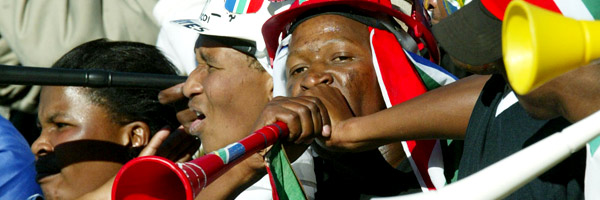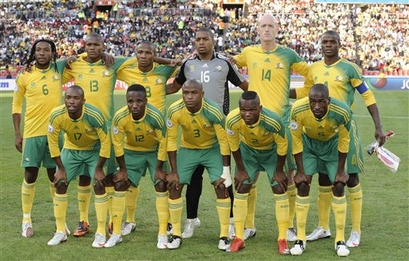Report in the South African newspaper, The Mercury
THE fate of some of South Africa’s oldest stadiums, including Durban’s
Absa Stadium, is already decided, despite the emotional debate expected
to rage around the continued existence of these venues.
Danny Jordaan, CEO of Fifa’s 2010 Local Organising committee, said at
the African Journalism Awards 2010 media debate in Durban on Friday,
that a decision to demolish the Boet Erasmus stadium in Port Elizabeth
had already been taken and that both Newlands and the Absa stadium in
Durban would share the same fate in time.
Responding to a question on whether the new stadiums would be white
elephants once the World Cup was over, Jordaan said the lifecycle of any
stadium was 50 to 70 years and that Newlands and the Absa stadium were
reaching their sell-by date.
“This is an emotional debate that will go on for a long time, but who,
once they have experienced the new, modern, sophisticated stadiums will
want to go back to the old ones? South Africa has made a bid to host the
Rugby World Cup in 2015 and if we win that, the games will most
certainly be hosted in the new stadiums. If that happened it would
certainly help to move this debate along,” he said.
Sharks rugby CEO Brian van Zyl said the issue hadn’t been raised with him.
“That’s the first I’ve heard of it and it’s absolute nonsense? Jordaan’s
opinion of Absa is subjective. In any case, we have made a promise to
all our stakeholders that before we make any decisions regarding this
stadium we will consult with them through a transparent process. To
date, the indication from many of them is they don’t want to move – I
guess it could be considered an emotive issue, but it’s about a culture.”
Van Zyl said according to clause six of the South African Rugby Union’s
constitution all international rugby matches, including the World Cup,
would be played at rugby venues. “And I don’t think that’s about to change.”
Western Province Rugby Union’s managing director, Rob Wagner, said it
was also the first he had heard of it.
“We own the stadium, there is no debt on it and it’s probably one of the
oldest rugby grounds in the world. It has heritage and tradition, why
would we want to demolish it? I can’t understand how Jordaan could have
said that.”

